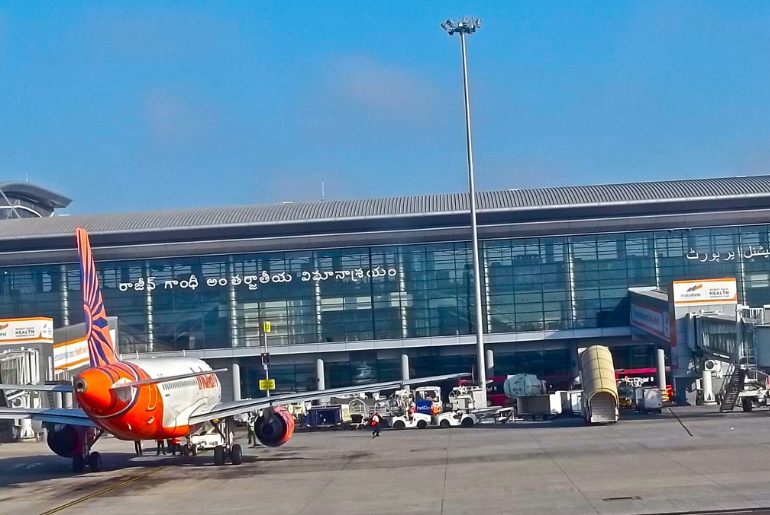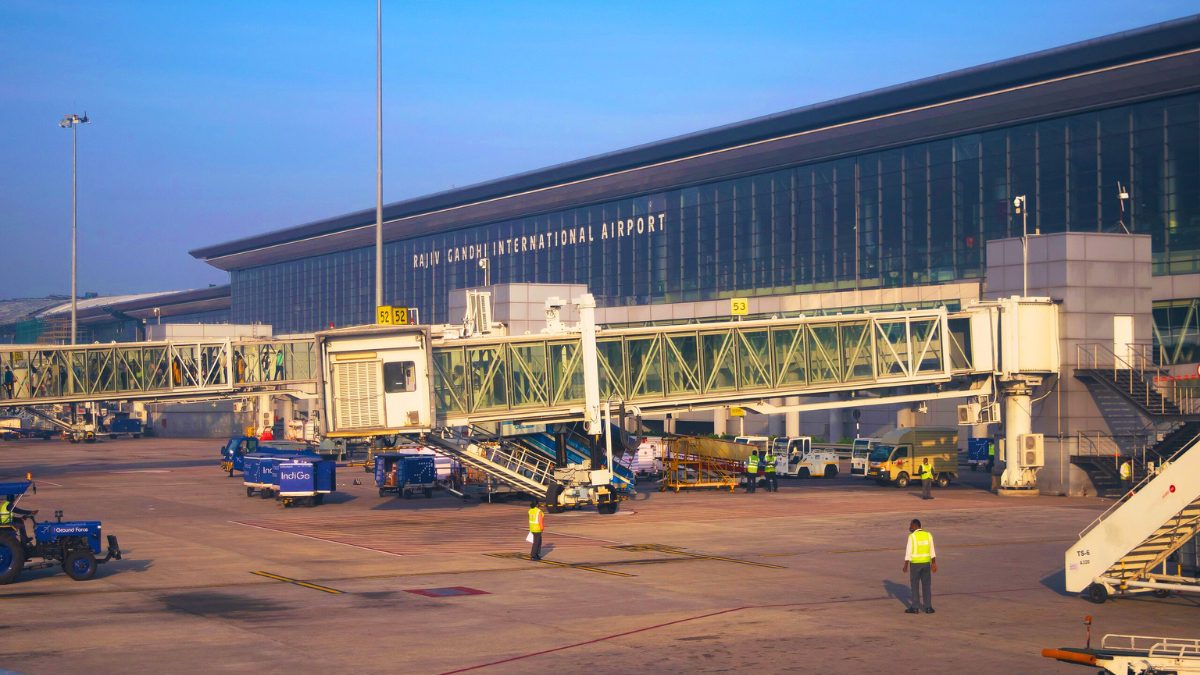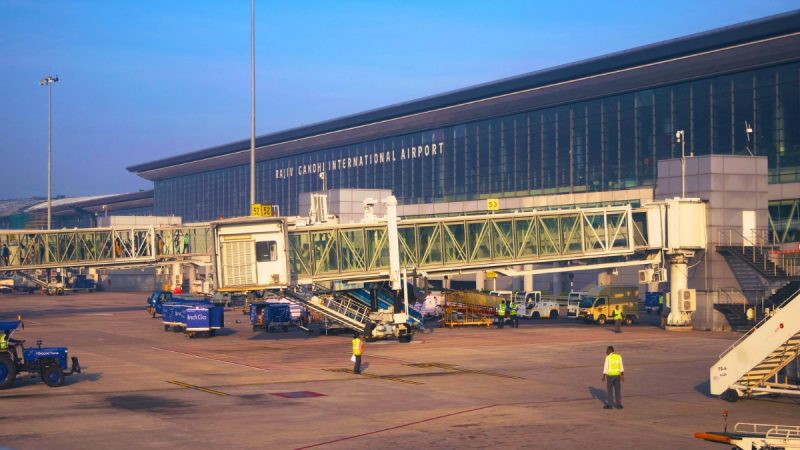The Rajiv Gandhi International Airport (RGIA) in Hyderabad is set to undergo a transformative expansion, with plans for a second terminal and an additional runway. This ambitious project by the GMR Group, which manages the airport, aims to cater to the projected passenger traffic of 45 million annually by 2030. It will be a significant rise from the current capacity of 30 million passengers.
Hyderabad Airport To Soar Higher With New Terminal

GMR Airports’ Executive Director and Chief Innovation Officer, SGK Kishore, emphasised the importance of staying ahead of demand. An estimated 45 million (yearly) are expected by 2030. He added that it is an estimate and that anything can happen, as reported by Financial Express.
The airport in Hyderabad began operations in 2008 with a capacity to handle 12 million passengers annually. Now, it has progressively scaled up to accommodate 34 million. However, with passenger numbers growing rapidly, plans for a new terminal and runway are being proactively developed.
RGIA’s long-term goal is to become a global hub of connectivity by handling up to 100 million passengers a year. This is in line with Hyderabad’s growing popularity as a travel and business hub. Consequently, it calls for infrastructure that meets its goals.
Also Read: Dehradun: 7 Accidents In 15 Mins! Unmarked Speed Breaker Meant To Curb Accidents Causes Them Instead
Advanced Tools Introduced To Boost Efficiency
Inaugurated GMR’s first state-of-the-art Airport Operations Centre (APOC) at Hyderabad RGI Airport.
A true testament to #DigitalIndia & #MakeInIndia, APOC’s cutting-edge tech will revolutionize airport operations, ensuring seamless passenger experiences & efficient resource use.… pic.twitter.com/ELKS6c4mjL— Ram Mohan Naidu Kinjarapu (@RamMNK) December 11, 2024
Even as it plans for future expansion, RGIA is setting new benchmarks in airport operations. On Wednesday, the GMR Hyderabad International Airport Limited (GHIAL) introduced India’s first AI-powered Airport Predictive Operation Centre (APOC).
According to Financial Express reports, this state-of-the-art platform combines landside, airside, and terminal operations. It utilises real-time data to enhance decision-making and minimise interruptions. The APOC improves the airport’s efficiency while guaranteeing a smooth travel experience.
The APOC and other innovations will help RGIA establish itself as a leader in airport management. The expansion is still in the planning stages. But GMR Group’s proactive approach shows that they are dedicated to making sure Hyderabad’s airport can accommodate future demands while upholding standards.
As passenger numbers soar and Hyderabad’s global connectivity grows, the second terminal at RGIA promises to be a game-changer for the city and the country.
Cover Image Courtesy: Wikimedia Commons
For more such snackable content, interesting discoveries and the latest updates on food, travel and experiences in your city, download the Curly Tales App. Download HERE. First Published: December 12, 2024 6:01 PM




